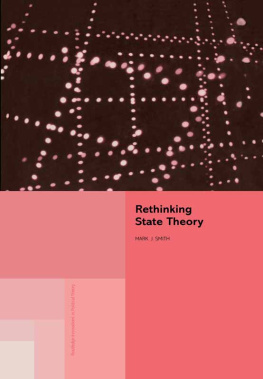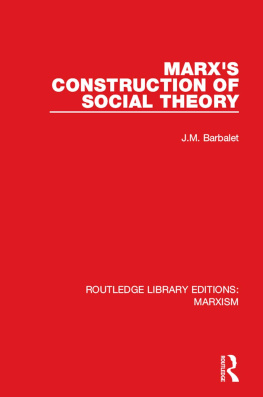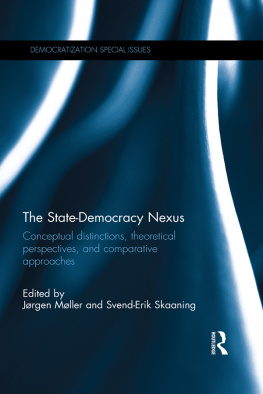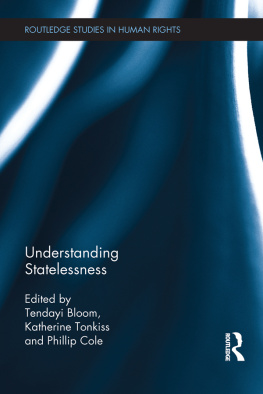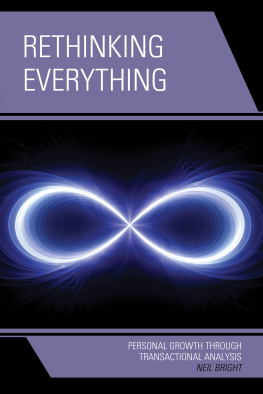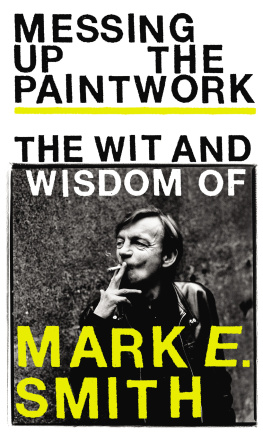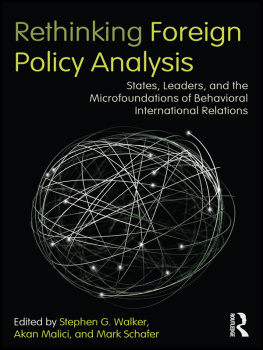Rethinking State Theory
In the last two decades, objects of analysis such as the state have increasingly been seen as uncertain and contested theoretical concepts. The very idea of the state as a recognizable object of analysis has been questioned. In this important work, Mark J. Smith presents the argument that existing theories of the state can be taken seriously as a way of addressing the present problems of understanding governance.
The book raises important questions to highlight how existing theoretical approaches can provide useful tools for understanding contemporary political developments. For example:
- Has governance deserted the state as traditionally understood?
- Was the state always the primary focus of attention in state theory?
Against this background, Smith explores three well-known approaches in contemporary political and social theory: neo-pluralism, neo-liberalism and neo-Marxism, and explores the work of thinkers such as Dahl, Hayek and Jessop.
This work acts as a lively and accessible introduction to the way in which state theorists see society and the state. Furthermore, by exploring the connections between substantive claims about the relationship between state and society, and the assumptions and values at work in state theories, this book makes a vital contribution to our understanding of both political theory and political reality.
Mark J. Smith is Lecturer in Social Sciences at the Open University and Visiting Professor in Philosophy and Methodology of the Social Sciences at the University of Oslo. He has been Visiting Lecturer in Social Theory at Queen's University (Canada) and in Critical and Cultural Theory at the University of Brighton. His recent works include Social Science in Question (1998), Thinking Through the Environment (1999) and Culture: Reinventing the Social Sciences (2000).
Routledge innovations in political theory
A Radical Green Political Theory
Alan Carter
Rational Woman
A feminist critique of dualism
Raia Prokhovnik
Rethinking State Theory
Mark J. Smith
Gramsci and Contemporary Politics
Beyond pessimism of the intellect
Anne Showstack Sassoon
Rethinking State Theory
Mark J. Smith
First published 2000
by Routledge
2 Park Square, Milton Park, Abingdon, Oxon, OX14 4RN
Simultaneously published in the USA and Canada
by Routledge
270 Madison Ave, New York NY 10016
Routledge is an imprint of the Taylor & Francis Group
Transferred to Digital Printing 2006
@ 2000 Mark J. Smith
Typeset in Garamond by Curran Publishing Services Ltd
All rights reserved. No part of this book may be reprinted or reproduced or utilised in any form or by any electronic, mechanical, or other means, now known or hereafter invented, including photocopying and recording, or in any information storage or retrieval system, without permission in writing from the publishers.
British Library Cataloguing in Publication Data
A Catalogue record for this book is available from the British Library.
Library of Congress Cataloging-in-Publication Data
Smith, Mark J., 1962
Rethinking State Theory/Mark J. Smith.
296 pp. 156 23.4 cm.
Includes bibliographical references and index.
1. State, The. I. Title
JC11.S57 2000 99-053000
320.P01--dc21
ISBN 0-415-20892-0 (alk.paper)
Publisher's Note
The publisher has gone to great lengths to ensure the quality of this reprint but points out that some imperfections in the original may be apparent
For Jane
Contents
Situating state theory:
metatheorizing and critical exegesis
Knowing the social as mutual exchange:
one principle and two postulates
Hayek and the use of knowledge:
competition as a discovery procedure
The phenomenological constitution of liberty:
rationality, democracy and equality
Exchange, power and institutionalization:
the idealist foundations in Jessop's early work
Towards a theory of the capitalist state I:
economy and polity
Towards a theory of the capitalist state II:
ideology and polity
From corporatism to Thatcherism:
characterizing the conjuncture
Triangular formation 1:
from abstract-simplicity to concrete-complexity
This study and the broader project of which it is an important part are the products of some years' work exploring the underbelly of philosophy of social science and social and political theory. I have incurred many debts in this labour and those I have not acknowledged here by name will, I hope, forgive me. Of particular importance in the formation of these arguments were the dialogues I had with William Outhwaite, Andrew Sayer, Luke Martell, Bob Jessop, Darrow Schecter, Peter Dickens, Mark Neocleous, John O'Neill, Jennifer Piatt and especially the late Mary Farmer who pushed me in the direction of writers such as Hayek and Buchanan. Without the companionship and conviviality of friends such as Phil Larkin, Claire Donovan, Jules Morton, Annabel Tomas, Alan Buckingham, Andreas Hess and Zdenek Kavan, this project would never have been sustained in its early stages. I must also thank all the students who attended the MA in Cultural and critical theory and the Concepts, methods and values experience for letting me try out different approaches and for responding critically (as well as positively when things worked).
As the project unfolded I began to acknowledge the complexities of representation in my recent research on knowledge construction, which added an extra dimension to the arguments developed here. For this, I owe a great deal to colleagues at the Open University, namely Simeon Yates, John Blunden, David Humphreys, Lynne Slocombe, Stuart Hall, Kath Woodward, Jessica Evans, Vivienne Brown and Martin Le Voi. Chris Meeks also provided invaluable and ingenious secretarial support in helping me to juggle this and four other writing projects. I must also thank Craig Fowlie, Liz Brown, Joe Whiting and Simon Whitmore at Routledge publications, and especially Susan Curran at Curran Publishing Services, for their patient support and careful editing in the development of this project. Most of all, this text could only have been completed with the love and support of Jane, Harold and George.
Mark J. Smith
Objects of analysis are not what they used to be. Despite enormous argument and considerable dispute about the proper focus and character of social scientific inquiry, there have been strong continuities in academic practices over time and across fields of knowledge as diverse as economics, psychology, sociology, geography and, our main concern here, political studies. We have experienced two centuries of disciplinarity where the study of the social has presumed that objects of analysis are concrete things with a definite structure, or alternatively that they are constituted by a set of components accessible to some procedure of knowing. Whether we consider the constitution of the economy as a sui generis object in the definition of economics, or the emergence of society, the mind and the polity, in each case we can find an attempt to legitimize and promote a specific brand of inquiry. The emergence of disciplinary fields of knowledge is tied to the emergence of particular forms of governmentality in the institutions of the academy, yet each has been destabilized over the last two decades. Objects of analysis are increasingly seen as complex, uncertain and contested spaces. This is not the place to conduct an inquiry into knowledge transformation (see Smith 1998b, 2000a, 2000b) but it is possible to explore some of its implications for understanding theories of the state.


